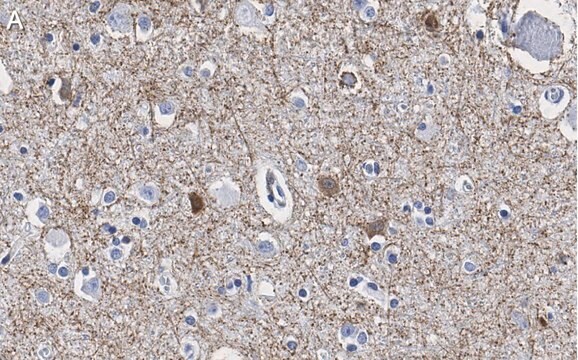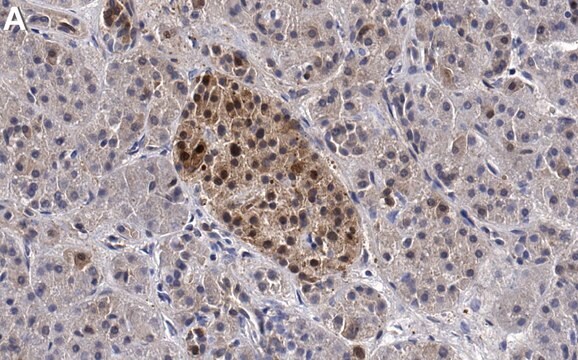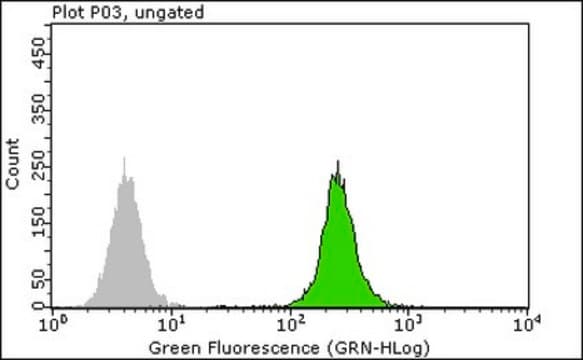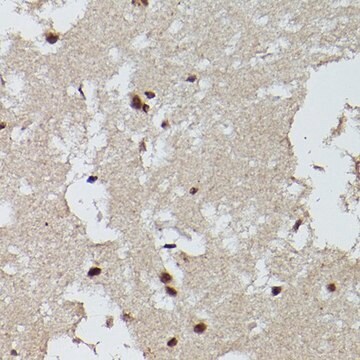ABE1863
Anti-PAGR1 (PA1)
from rabbit
Synonyme(s) :
PAXIP1-associated glutamate-rich protein 1, Glutamate-rich co-activator interacting with SRC11, GAS1, PAXIP1-associated protein 1, PTIP-associated protein 1
About This Item
Produits recommandés
Source biologique
rabbit
Niveau de qualité
Forme d'anticorps
affinity isolated antibody
Type de produit anticorps
primary antibodies
Clone
polyclonal
Espèces réactives
mouse, human
Conditionnement
antibody small pack of 25 μg
Technique(s)
ChIP: suitable
immunocytochemistry: suitable
western blot: suitable
Isotype
IgG
Numéro d'accès NCBI
Numéro d'accès UniProt
Conditions d'expédition
ambient
Modification post-traductionnelle de la cible
unmodified
Informations sur le gène
human ... PAGR1(79447)
Description générale
Spécificité
Immunogène
Application
Chromatin Immunoprecipitation Analysis: A representative lot detected PAGR1 (PA1) in MEF′s (Cho, Y.W., et. al. (2009). Cell Metab. 10(1):27-39).
Immunocytochemistry Analysis: A representative lot detected PAGR1 (PA1) in U2OS & HeLa cells (Cho, Y.W., et. al. (2009). Cell Metab. 10(1):27-39).
Qualité
Western Blotting Analysis: 0.5 µg/mL of this antibody detected PAGR1 (PA1) in 10 µg of HEK293 cell nuclear extract.
Description de la cible
Forme physique
Autres remarques
Vous ne trouvez pas le bon produit ?
Essayez notre Outil de sélection de produits.
Code de la classe de stockage
12 - Non Combustible Liquids
Classe de danger pour l'eau (WGK)
WGK 1
Certificats d'analyse (COA)
Recherchez un Certificats d'analyse (COA) en saisissant le numéro de lot du produit. Les numéros de lot figurent sur l'étiquette du produit après les mots "Lot" ou "Batch".
Déjà en possession de ce produit ?
Retrouvez la documentation relative aux produits que vous avez récemment achetés dans la Bibliothèque de documents.
Notre équipe de scientifiques dispose d'une expérience dans tous les secteurs de la recherche, notamment en sciences de la vie, science des matériaux, synthèse chimique, chromatographie, analyse et dans de nombreux autres domaines..
Contacter notre Service technique








